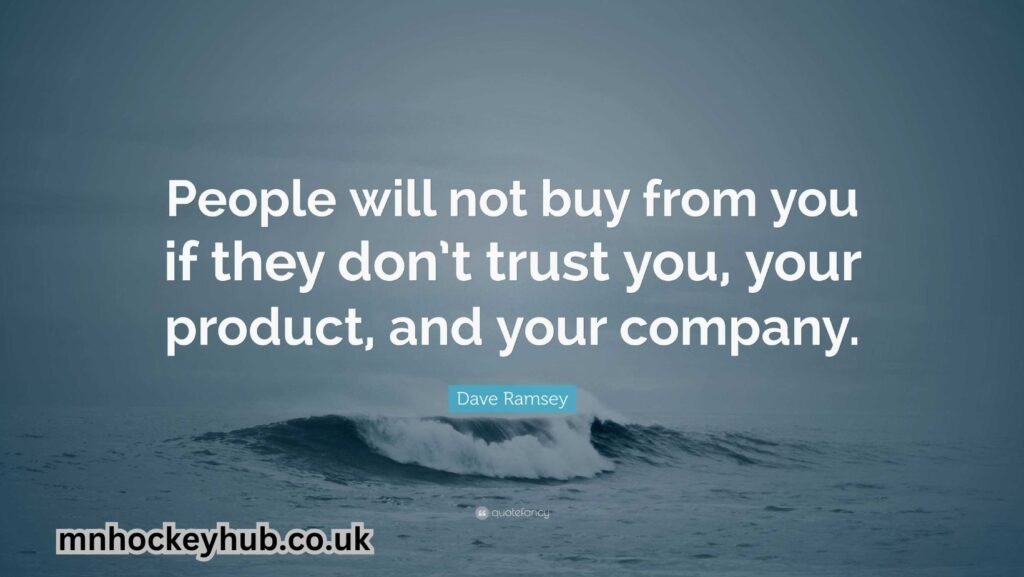In the contemporary business landscape, integrity is crucial for establishing and sustaining effective connections. Companies are progressively making ethical considerations regarding their business partnerships, with a primary consideration being the potential partner’s shown honesty and respect for others. We don’t do business with people who steal valor chimneys. A significant issue that businesses are addressing is valor stealing, a term denoting persons who falsely assert military service or awards. The expression “we do not engage in commerce with individuals who appropriate valor” is being adopted as a guiding principle by numerous corporations and organizations, reflecting a wider concern with trust and respect. By confronting this issue directly, businesses demonstrate their dedication to ethical procedures and convey a clear message on their beliefs, so safeguarding their reputation and enhancing their relationships with customers and partners.
Key Takeaways
- Valor theft involves falsely claiming military service or honors for personal gain, considered both unethical and potentially illegal under the Stolen Valor Act.
- Businesses adopting the principle “We don’t do business with people who steal valor” prioritize ethics and integrity, protecting their reputation.
- Collaboration with valor thieves can erode trust, violate ethical standards, and expose companies to legal risks.
- Proactive measures, such as due diligence and fostering transparency, help businesses avoid such associations.
- Upholding ethical standards attracts loyal customers, enhances brand reputation, and demonstrates corporate social responsibility.
What is the meaning of “We Do Not Engage in Business with Individuals Who Commit Valor Theft”?
The statement “we do not engage in business with individuals who misappropriate valor” represents a firm ethical position against those who deceitfully assert military accolades or services to obtain personal or professional benefits. Valor theft fundamentally constitutes a sort of fraud and deceit. For organizations, entering into deals or collaborations with individuals who partake in deceptive methods can result in significant legal and reputational repercussions.

What is Valor Stealing?
Valor stealing denotes the fraudulent assertion of military decorations, titles, or accolades that were not legitimately acquired. This may encompass the fraudulent assertion of military service, the misappropriation of esteemed accolades such as the Medal of Honor, or the display of unearned military honors. Such activities not only dishonor the efforts of genuine veterans but also undermine the credibility of businesses and persons affiliated with them.
Reasons Businesses Decline to Collaborate with Valor Stealers
- Erosion of Trust: When a firm collaborates with an individual notorious for valor theft, it jeopardizes the trust of its customers, employees, and the public. Trust is fundamental to any successful business connection, and perceived dishonesty can severely undermine a brand’s reputation.
- Transgression of Ethical Standards: Numerous enterprises prioritize ethics and integrity in their operations. By eschewing individuals who engage in value theft, these companies maintain their ethical standards, guaranteeing they do not associate with fraudulent operations.
- Legal Risks: Valor theft may result in legal consequences, especially if an individual employs phony military service records to obtain benefits or sway decisions. Companies collaborating with these persons may encounter legal disputes, penalties, or inquiries.
Also Learn More: we don’t do business with people who steal valor chimney
The Effect of Stolen Valor on Corporate Reputation
Conducting business with an individual who misrepresents their military service can significantly impact a company’s reputation. In an era of rapid information dissemination and heightened consumer awareness of ethical issues, firms. Associate with individuals or organizations engaged in fraudulent activities may experience detrimental consequences:
| Reputation Impact | Effect |
|---|---|
| Loss of Trust | Customers and partners may feel betrayed and abandon the business. |
| Public Outrage | News of valor stealing can spread quickly, leading to public backlash. |
| Damage to Brand Image | Brands associated with fraud may lose their positive image. |
| Long-Term Financial Consequences | Loss of customers and partnerships can result in revenue decline. |
A business associated with value theft may experience an immediate erosion of reputation. Customers and stakeholders anticipate honesty and integrity in all transactions.
Case Studies of Enterprises Impacted by Valor Theft
- Company X and the Valor Theft Scandal: A prominent corporation previously collaborated with a guy who asserted. Upon the revelation of the truth, the company forfeited several prestigious contracts, resulting in a 15% decline in its stock price within weeks. This case underscores the necessity of validating assertions and performing due diligence before to entering commercial partnerships.
- Company Y’s Rebranding Post-Scandal: After collaborating with a notorious valor thief, Company Y became entangled in a reputational problem. The corporation undertook significant investment in rebranding, which encompassed public declarations. Sponsorship of veteran organizations, and a thorough evaluation of its relationship procedures. The company incurred substantial income losses; nevertheless, following years of recuperation, it restored a portion of its customer base.
The Legal and Ethical Ramifications of Valor The act of theft
Valor theft is beyond just corporate ethics; it also entails legal ramifications. In the United States, fraudulently asserting military awards becomes a criminal offense under the Stolen Valor Act of 2013. This legislation renders it a criminal violation to assert or utilize military decorations, including the Medal of Honor, for personal benefit.

Stolen Valor Act of 2013
The Stolen Valor Act was enacted to combat the increasing issue of persons who falsely assert having received military decorations and honors. Individuals who fraudulently assert military service or awards for personal benefit may incur penalties and imprisonment under the law. Individuals who partake in valor stealing may encounter civil litigation from veterans. Organizations pursuing damages for the defamation of military awards.
Also, Read More: we don’t do business with people who steal valor chimney
| Stolen Valor Act Consequences | Potential Penalties |
|---|---|
| Fines | Up to $100,000 |
| Imprisonment | Up to one year |
| Civil Suits | Veterans can file lawsuits for damages |
This is an added danger for enterprises. A corporation that knowingly conducts business with an individual breaching the Stolen Valor Act may incur indirect legal consequences. Including the forfeiture of government contracts or participation in litigation.
Establishing Trust and Reputation by Ethical Decisions
Establishing and sustaining trust is crucial for enterprises. we don’t do business with people who steal Valor chimneys. Declining to engage in commerce with those who commit valor theft is a positive measure. By upholding ethical standards and ensuring that their partners embody those values, businesses can:
- Attract Devoted clients: Ethical enterprises are more inclined to attract devoted clients who appreciate integrity.
- Foster Positive Relationships with Warriors: Numerous organizations actively endorse veteran communities and can enhance these relationships by refraining from collaborating with entities who dishonor warriors through valor theft.
- Exhibit Corporate Social Responsibility: Opting to eschew valor thieves indicates a company’s dedication to social responsibility and reverence for the sacrifices of military troops.

Methods for Businesses to Safeguard Against Valor Theft
Businesses can implement many measures to prevent collaboration with persons who engage in valor theft, including we don’t do business with people who steal valor chimney
Also, Read More: we don’t do business with people who steal valor chimney
- Perform Comprehensive Background Investigations: Investigate prospective partners and authenticate any assertions of military service or accolades via official sources.
- Encourage Openness: Guarantee that all commercial transactions are transparent and founded on substantiated facts.
- Instruct Personnel: Instruct employees about the significance of ethics and integrity, particularly regarding valor theft, to mitigate the risk of engagement in fraudulent actions.
FAQs

What constitutes valor stealing?
Valor stealing denotes the fraudulent assertion of military service or accolades to get respect, perks, or advantages.
Why do enterprises decline to interact with valor thieves?
Businesses decline to associate with valor thieves as such actions undermine confidence, breach ethical norms, and may result in legal repercussions.
What are the ramifications of valor theft?
The act of valor theft may incur legal repercussions, such as monetary penalties and incarceration, in addition to harming the reputation of individuals and enterprises. we don’t do business with people who steal valor chimney
How can enterprises avert collaboration with valor thieves?
Enterprises can avert collaboration with valor thieves by performing background investigations and validating assertions of military service. Ensuring transparency in all commercial transactions.
Is valor theft a criminal offense?
Indeed, valor theft constitutes a criminal felony under the Stolen Valor Act, potentially leading to penalties, incarceration, and civil litigation.
Also, Read More: we don’t do business with people who steal valor chimney
Conclusion
The statement “we don’t do business with people who steal valor chimney” embodies a fundamental ethical position. Enterprises must embrace to safeguard their brand, uphold customer trust, and secure sustained success. Valor theft constitutes a betrayal of military personnel and their sacrifices. It may also result in significant legal, financial, and reputational repercussions for businesses. Associate with individuals who perpetrate such fraudulent activities. By valuing integrity and maintaining ethical standards, organizations can protect their brand, cultivate loyalty, and promote. A culture of respect and honesty within the corporate realm.

